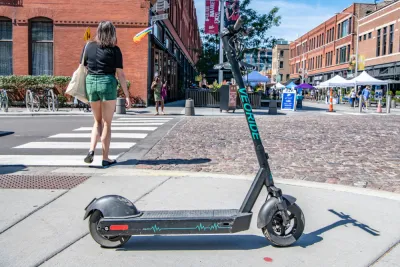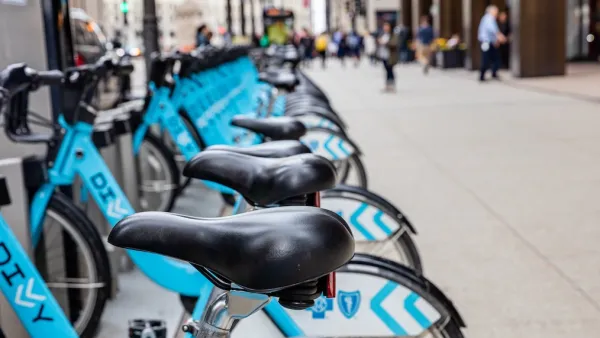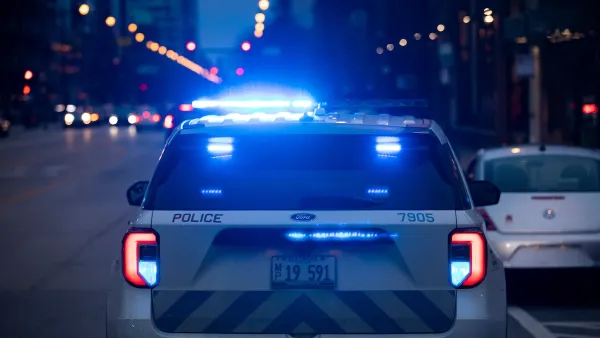After two pilots, Chicago has permanently legalized e-scooters in the city, but the equity provisions remain to be worked out.

After two pilot programs and a series of public testimonies, e-scooters are returning to Chicago permanently.
The City Council Transportation Committee passed an ordinance on October 13 that would allow three companies to deploy about 12,500 scooters citywide starting next year, making e-scooters an integral part of the city’s transportation system. (Bird, Lime and Spin, as participants in the last city pilot, are likely the three companies, but they will have to re-apply.)
The e-scooter program showed some early success during both pilots. In the 2020 pilot, running at a much bigger scale than in 2019, an average of more than 4,000 trips were taken daily. More than 80% of the riders surveyed believed that scooters should be part of the city’s transportation future. E-scooter-related calls to 311, including complaints about sidewalk riding or devices being locked to private property, dropped by 75% compared to the 2019 pilot. Most injuries reported were minor and usually to scooter users themselves rather than to pedestrians.
Olatunji Oboi Reed, president and CEO of mobility justice advocacy group Equiticity, is excited to see the new transit alternative coming to his neighborhood. Born and raised on the south side of Chicago, Reed has seen firsthand how transportation inequities adversely impact majority Black and brown communities. Those communities have the fewest transportation choices, the longest commutes, the highest concentration of industrial centers and truck traffic. “We don’t have the luxury of picking and choosing which mode of travel we want available in our neighborhoods,” says Reed. “The severity of the inequities is too vast [so] we must have every single mode of travel delivered to our doorstep.”
FULL STORY: Chicago’s E-Scooter Program Is Now Permanent. But Will It Be Equitable?

Analysis: Cybertruck Fatality Rate Far Exceeds That of Ford Pinto
The Tesla Cybertruck was recalled seven times last year.

National Parks Layoffs Will Cause Communities to Lose Billions
Thousands of essential park workers were laid off this week, just before the busy spring break season.

Retro-silient?: America’s First “Eco-burb,” The Woodlands Turns 50
A master-planned community north of Houston offers lessons on green infrastructure and resilient design, but falls short of its founder’s lofty affordability and walkability goals.

Test News Post 1
This is a summary

Analysis: Cybertruck Fatality Rate Far Exceeds That of Ford Pinto
The Tesla Cybertruck was recalled seven times last year.

Test News Headline 46
Test for the image on the front page.
Urban Design for Planners 1: Software Tools
This six-course series explores essential urban design concepts using open source software and equips planners with the tools they need to participate fully in the urban design process.
Planning for Universal Design
Learn the tools for implementing Universal Design in planning regulations.
EMC Planning Group, Inc.
Planetizen
Planetizen
Mpact (formerly Rail~Volution)
Great Falls Development Authority, Inc.
HUDs Office of Policy Development and Research
NYU Wagner Graduate School of Public Service




























